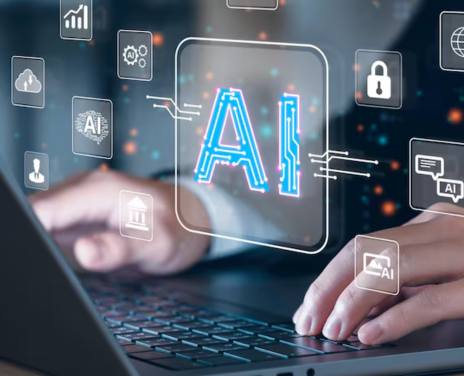The Indian recruitment sector is now going through a major and quite stealth change. The hiring process has often been evaluated on metrics such as volume and turn-around time. However, AI technology, a skills-first approach along with a fresh thinking about human intervention in the hiring process is changing this growing narrative.
With automation and AI now becoming commonplace in the HR tech stacks, there is a distinct shift in Indian companies from rapid recruitment to precision recruitment.
The Change: Shift from Quantitative Recruitment to Qualitative Recruitment
Not too far in the past, there were many recruitment teams based in India who held a very basic KPI: to onboard as many as candidates as possible, in the shortest time possible. This model centered around volume first not only had high attrition, but also created a culture of frequent job changes.
The tide is finally turning as AI-backed systems and a shift toward skill-based evaluations is enabling a pivot to “ quality hiring”— recruitment strategies that aim to optimize the candidate experience. While placing greater importance on the role of retention, value addition, and strategic engagement with the employees instead of just filling empty seats.
As reported by LinkedIn, nearly 75% of Indian recruiters are shifting their budgets toward smarter tools and platforms that enable this change.
The Importance of AI in Recruitment in India
AI is already part of the recruitment industry. From screening resumes, conducting video interviews, to employing chatbots, AI technology makes it easier for recruiters to automate repetitive tasks, analyze vast amounts of information, and make better decisions.
Main AI Features Enhancing Recruitment Processes:
- Automatic Keyword Screening: Filters candidates in real-time through predefined keywords and descriptions.
- Voice and Appearance Evaluation: Interviews that analyze the applicant’s voice, confidence, face, and attire.
- Predictive Analytics: Algorithms determining likelihood of retention or success for a specific candidate.
- Skill Matching Engines: Matching identified candidates not simply by title or experience but by skill-set compatibility.
AI technologies improve the recruiter’s ability to analyze data and automate decision making while reducing prejudice.
AI application ensures recruiters have increased prejudice-free decision-making ability, time efficiency, and automation of tasks, and improved analysis capabilities.
Why Human Judgment Still Matters
With the urgency of implementing AI technologies, there is a clear consensus among recruiters and HR professionals: AI is only a support instrument; it never replaces human reasoning.
Although I may have the ability to screen resumes, rank candidates, or even conduct pre-recorded structured video interviews, the final hiring decisions still rest with people.
Human recruiters are indispensable in determining:
- The Fit with Organizational Culture
- Soft skills including empathy, leadership, adaptability, and others
- Collaboration with the team and alignment with the organizational values
- Distinct professional paths and narratives that only humans can appreciate.
Therefore, the Indian hiring of the future will be AI-assisted and human-led.
Clearing Out Degree Obsession
The Indian tech and startup ecosystem for a long time focused on degrees, considering IITs, IIMs and other top tier institutions as the primary sources of talent. This seems to be changing now.
Digital-first sectors such as software, finance, cloud computing, and, AI are leading the charge in adopting a “skills-first” approach.
Some of the in-demand skills include:
- Computation via cloud platforms such as AWS, Azure and GCP.
- Data analytics and AI/ML.
- Digital marketing and content automation.
- Cybersecurity.
- Communication and leadership.
Newer platforms such as GitHub, Kaggle, and Coursera are gaining recognition similar to that of college transcripts. Recruiters are increasingly focusing on skills and talent, rather than the college attended.
Benefits and Obstacles of AI-Driven Recruitment
Benefits:
- Reduced time to hire
- Improved quality of matching candidates to roles
- Enhanced diversity and decreased hidden biases
- Automated screening is consistent, objective, and relies on data
Obstacles:
- Danger of biased algorithms
- Impersonal interactions in preliminary interview rounds
- “Gaming” the system through overly optimized résumé phrases
- Tunnel vision from relying too heavily on technology may bypass remarkable candidates who don’t fit the mold
Finding the middle ground is essential. The sharpest hiring teams in India are leveraging transparent AI systems while pairing them with seasoned recruiters who know how to identify what machines miss.
The Impact of AI: A Case Study
A tech company in Noida implemented an AI interview system to pre-screen over 5,000 applicants for a coding position. The AI performed structured interviews, evaluated soft skills such as communication, confidence, and logical reasoning, and narrowed it down to 200 candidates. Human recruiters interviewed this final pool and hired 15 developers. Benefits included reduced hiring time, enhanced performance, and zero early attrition.
Looking Forward: The Emergence of Hybrid Recruitment
The following outlines the features of an emerging hybrid model in India:
AI assists with efficient processes resumes, scheduling, and scoring
- Recruiters manage empathetic tasks such as storytelling, negotiation, and final decision-making
- Success is determined through productivity, retention, and alignment with company culture rather than speed
- Businesses that master this model will build smarter teams, faster growth, and lower employee turnover.
Last Words
Recruiting in India is no longer about just hiring people en masse. It now requires a combination of technology, insight, and human understanding. The intelligence that drives AI is invaluable, but the ability to gauge people intuitively is a human quality that must not be overlooked. Competence—not credentials or CVs—will be the yardstick of talent in the years to come.
As a talent recruitment firm, we make it a point to monitor such shifts and assist our clients and partners to remain agile. To all recruiters, organizational executives, or even prospective employees, the takeaway is simple:
Enhance human judgment with AI but do not allow it to replace the human touch. Focus on the skill set, and hire smart.


